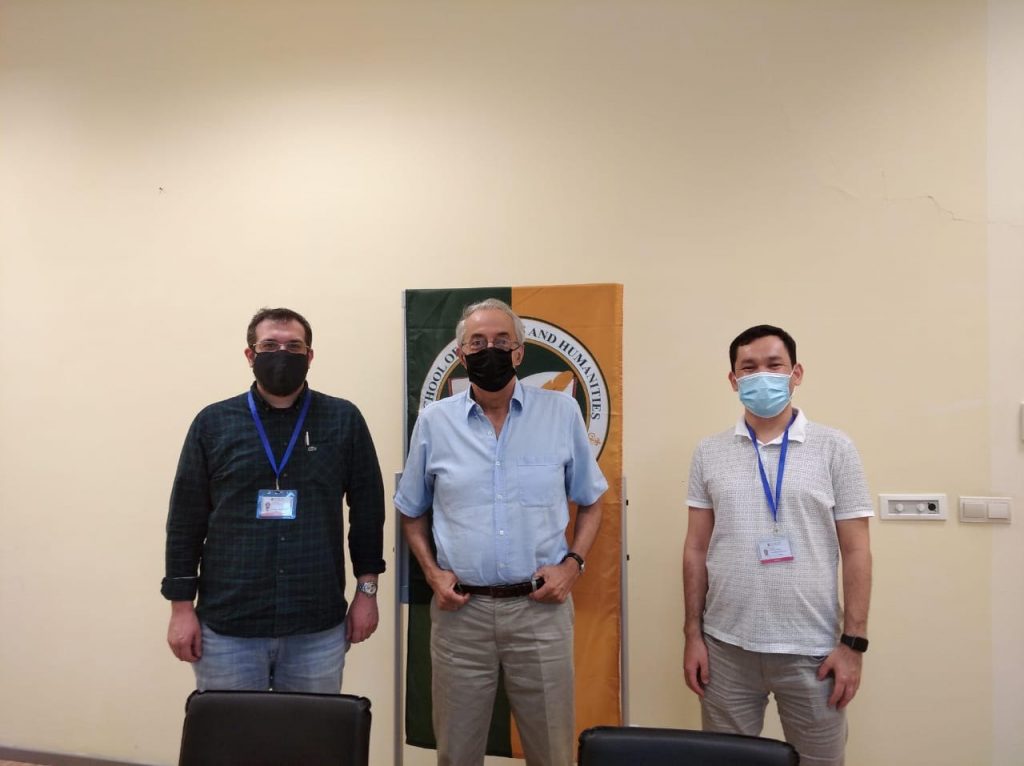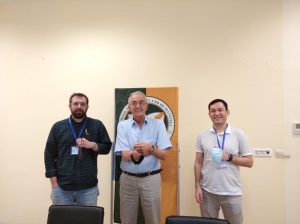SUMMARY OF ACTIVITIES OF DYNAMICS DAYS CENTRAL ASIA VI VIRTUAL CONFERENCE, NAZARBAYEV UNIVERSITY JUNE 2 – 5, 2020

Professor Anastasios Bountis: This was the first international online conference organized at Nazarbayev University during this quarantine period, and we all approached it with some hesitation, as we were unaware of what difficulties might arise. However, due to our careful planning, the attendees were given well in advance explicit instructions how to use the Zoom platform, how to ask questions and how to keep their microphones muted, and thus it all went very smoothly. We allowed only 20-minute talks with 15-minute intervals every 2 hours and grouped the presentations according to their content to keep the participants focused on the topics they were interested in.

Ever since 1980, a series of Conferences called “Dynamics Days” began to be organized annually, first in the Netherlands and the USA and then all over the world, adding to the title locations like North and South Europe and later Latin America, Asia Pacific and more recently Central Asia. These events consist of 3 – 4 days of short talks aiming to present new results in the areas of dynamical systems, nonlinear dynamics, chaos and more broadly Complexity Science. In the past 4 decades the science of Complexity has focused on various fields of natural, technological, and social sciences through modeling, data analysis, prediction, and control. It employs methods from statistical physics, dynamical and stochastic processes, and is exploring applications in biology, medicine, earth and environmental sciences, engineering and economics.
Since 2015, there have been 6 such events entitled “Dynamics Days Central Asia” (DDCA), mainly in Uzbekistan (see http://www.ddaysca4.las.uz/ in 2017, http://ddca5.las.uz/, in 2019), one at Nazarbayev University in 2016 and this year, DDCAVI, June 2 – 5, 2020, again at our University, https://ssh-old.nu.edu.kz/6th-dynamics-days-central-asia/. The special feature this year was that it was held online, under the auspices of the School of Science and Humanities, and its Dean, Prof. Daniel Pugh. We focused especially on nonlinear and stochastic mechanics, chaotic attractors and complex networks applied to epidemic spreading on June 2, statistical physics and biological networks modeling brain dynamics on June 3, mathematical physics and mechanical engineering in June 4 and quantum networks, fluid mechanics and integrable systems in June 5.
DDCAVI was a very successful online meeting, as may be judged by its 33 invited speakers: 5 from UK, 5 from Greece, 3 from Germany, 2 from India, Italy, Iran, South Korea and Kazakhstan, and 1 from Russia, China, Pakistan, Uzbekistan, Belgium, Slovenia, Spain, S. Africa, Indonesia, and Turkey. There were 130 participants from China, India, Russia, Iran, Kazakhstan, UK, Greece, Slovenia, Turkey, Kurdistan, Brazil, USA, South Africa, Hungary, Spain, France and Germany, 70 – 80 of whom were following the lectures at all times.
The Conference was chaired by Professor Anastasios Bountis, Department of Mathematics, head of the Organizing Committee, while special help was graciously provided by Assist. Prof. Ardak Kashkynbayev and Dr. Konstatinos Kaloudis.



